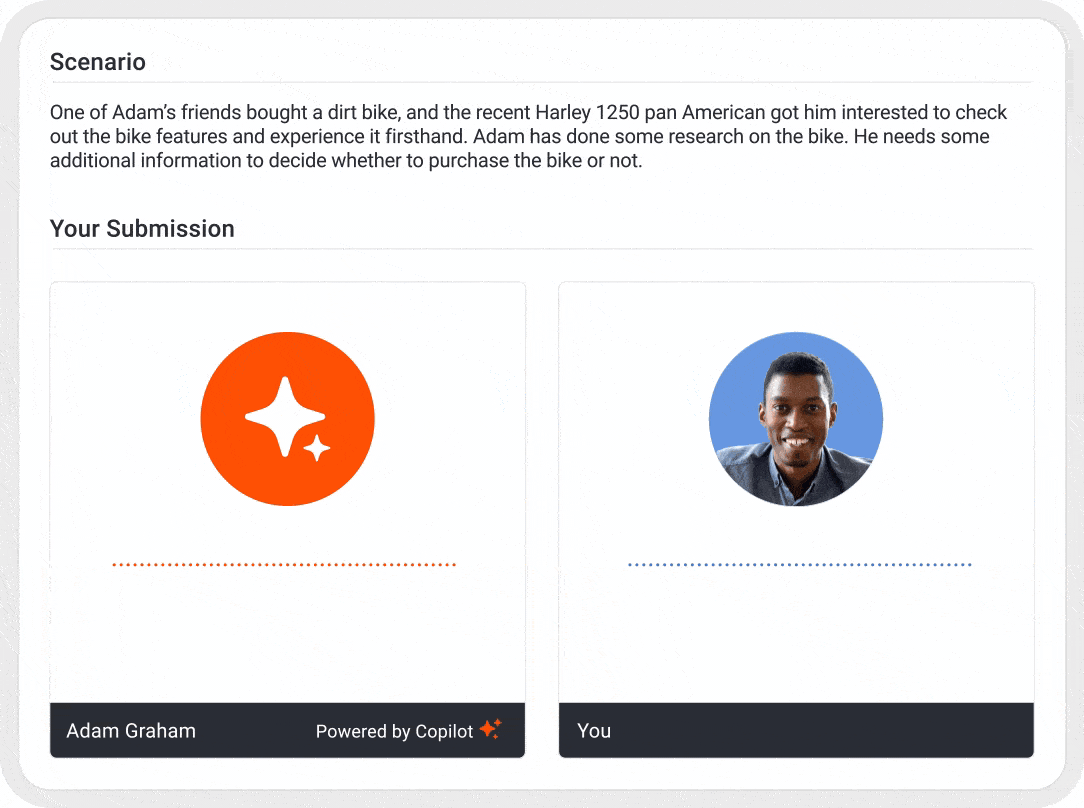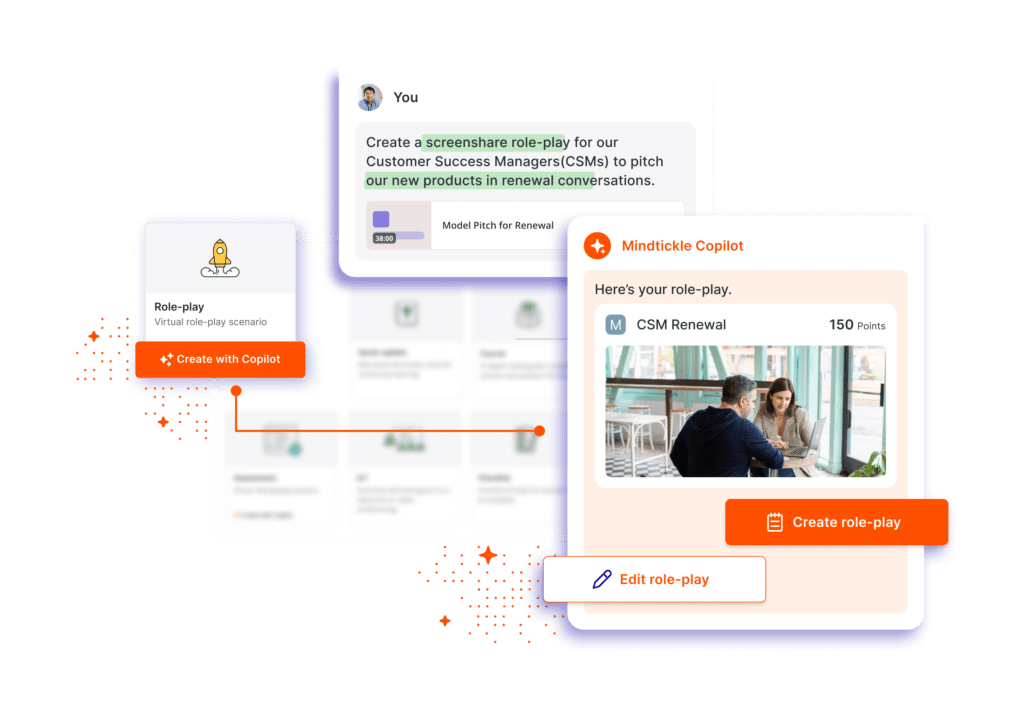Each seller on your team needs consistent, quality sales coaching to be successful. That includes your all-stars, your lowest performers, and everyone in between.
When done well, sales coaching contributes to better outcomes. Research tells us that effective sales coaching can boost key metrics, including win rates and quota attainment—not to mention engagement and retention.
A recent analysis found that top-performing sales reps receive four times more coaching than the average rep. That’s no coincidence.
Top-performing reps receive
But traditional sales coaching methods are rapidly becoming obsolete in today’s sales environment.
Today, innovative sales leaders are turning to AI-driven coaching solutions to ensure each sales rep has what it takes to deliver outstanding experiences and close more deals. Read on as we explore why this shift is necessary – and how it’s transforming sales coaching dynamics.
The rise of AI feedback
Sales reps have always relied on manager feedback to improve performance and outcomes.
But traditionally, sellers were at the mercy of their manager’s schedule. When sellers wanted real-time feedback, they had no choice but to wait around for it.
The era of waiting around for manager feedback is over. Modern sales reps seek immediate, actionable insights they can leverage to hone their skills immediately. AI makes this possible with AI role-plays that facilitate on-demand simulated sales conversations in hyper-realistic sales scenarios and give immediate qualitative and quantitative feedback.

Not surprisingly, generative AI role-play scenarios are becoming sellers’ preferred choice. These AI-powered role-plays provide real-time feedback on your sentiment, speech pace, objection handling, and much more, empowering sales reps to refine their techniques more efficiently than traditional coaching ever would. Sales reps can fine-tune their skills faster, which means they can accelerate and close more deals.
An AI-first coaching approach is favored by sales reps and managers
Both sales reps and managers are gravitating toward an AI-first approach to sales coaching. It’s easy to see why.
An AI approach enables sales managers to boost performance across their entire team by addressing each sales rep’s strengths and weaknesses. However, sales managers don’t have to waste time on ineffective, inefficient sales coaching practices.
On the other hand, reps appreciate the opportunity to practice role-playing with an AI buyer multiple times in a no-judgment environment. This repetitive practice—coupled with instant feedback and suggestions for improvement from AI—ensures that sales reps’ skills are significantly honed when they seek input from their manager.
The practice itself is the goal, not perfection. We see that our customers practice 4-6 times before they submit.
Mindtickle customers practice
This practice with a dynamic AI buyer who throws out objections allows reps to get comfortable with their talk tracks and be ready to tackle any real customer’s objection.
Traditional coaching has limitations
The responsibility of sales coaching once rested solely on the shoulders of sales managers. But as the size of their teams and list of responsibilities grow, many sales managers simply don’t have enough time to spend on one-to-one development.
That means sales coaching often goes by the wayside. In 2023, the average number of monthly coaching sessions a rep receives decreased year over year.
Traditional coaching methods are slow and resource-intensive. Sales managers must listen to live or recorded sales calls or role-plays and then deliver meaningful feedback. Multiplying this across a team of reps quickly becomes a heavy burden for even the best sales managers.
AI can simulate a wide range of realistic sales scenarios, from discovery conversations to competitive differentiation conversations to price negotiation conversations. This allows reps to practice their skills and get meaningful feedback without taking valuable time from their managers.
The role of sales leaders in coaching is evolving
AI is transforming sales coaching, but that doesn’t mean sales managers will soon be uninvolved.
It will just change.
Direct interaction between a manager and a rep is key to building trust, strengthening interpersonal relationships, and improving performance. That will never change. However, sales managers’ role in coaching is evolving – arguably for the better.
Today, AI is equipped to handle the bulk of feedback and practice—the time-consuming, day-to-day elements of delivering a personalized sales coaching program.
For instance, say your reps struggle with discovery. Sales enablement can work with sales managers to set up a hyper-realistic scenario that maps to your industry and buyer persona that reps can use to practice their discovery chops. The more they practice, the better they will get at uncovering buyer pains and needs.
This role-play practice can lead to real and meaningful skill coaching rather than the tactical deal coaching that often tends to bring in revenue.

Thanks to AI, sales managers are no longer bogged down by the details of day-to-day coaching. Instead, they can focus on overarching goals and personalized team development plans.
Sales coaching will never be the same
Sales coaching will always be a key ingredient of sales success. But the landscape of sales coaching is fundamentally changing. And that’s a good thing.
Self-serve, contextual AI-driven role-plays and feedback in the flow of work won’t just enhance how sales reps practice their skills but will be the death of traditional sales coaching.
Combining AI efficiency with strategic oversight from sales leaders creates a more dynamic, effective coaching model.
Mindtickle's AI role-play experience
Test your skills with our AI role-plays experience. Practice your pitch, get instant feedback and recommendations for improvement.
Try Interactive Role-Plays


 By Helen Waite
By Helen Waite
 By Poornima Mohandas
By Poornima Mohandas
 By Rahul Mathew
By Rahul Mathew